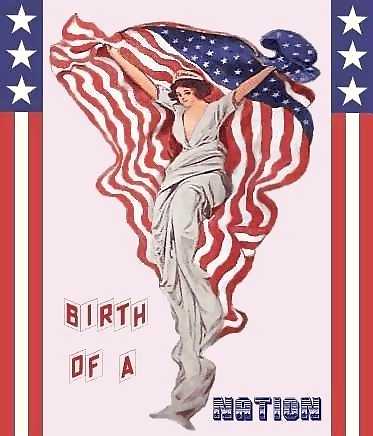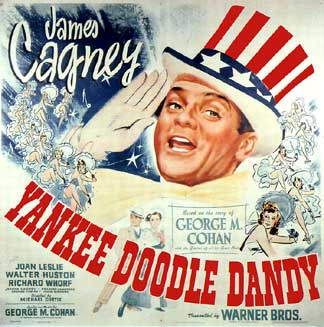 | Asheville business & community directory |
|
This is an archived page that may contain outdated or incorrect information. Please visit www.Asheville.com for the latest news, events, and more.
 With our first post-September 11th Independence Day celebration behind us, it seems the entire world held its collective breath and celebrated along with us. Together, we sang our favorite songs that spoke to all of us to remain united in this unsettled time.
With our first post-September 11th Independence Day celebration behind us, it seems the entire world held its collective breath and celebrated along with us. Together, we sang our favorite songs that spoke to all of us to remain united in this unsettled time.Along with favorite songs like "God Bless America" and "The Star Spangled Banner," many of us also sang a couple of verses of "Yankee Doodle." Now an American standard, the song was not always meant to be a complimentary tune. In fact, it is interesting to uncover the roots of this much-loved song from colonial times. The following excerpt from an article written by Dr. Audra Himes for yourdictionary.com, explains the original meaning behind the song. It deciphers each phrase from this American classic, one that we all sing, but probably don't understand, particularly that part about "macaroni." Read on and enjoy. It seems like the most nonsensical verse: "Yankee Doodle went to town / A-ridin' on his pony / Stuck a feather in his cap / And called it macaroni." Why would anyone do that? Why would anyone sing anything that silly? The answer has to do with coonskin caps, European finery, and the vicissitudes of fashion. During the 18th century, the American colonies were a rough-and-ready, deeply rural, isolated land. In 1776, a printer in London published a map entitled "Theatre of War in North America" with a population table of the British Colonies reportedly printed in 1765 in New Jersey. It gives the number of "Men (White and Black) able to bear Arms" (600,000) and "Number of Inhabitants" (2,400,000). That small populace was scattered from "Canada and Labrador" in the north to "Georgia, with the two Floridas (East and West)" in the south. The British holdings in North America were further divided east from west by the Appalachian Mountain range, extending from New York to Georgia. In most of the Colonial Period and Early Republic, leisure time was scarce. Families granted Pioneer Deeds had to make the land habitable and sustain life. Only a small percentage of the entire population had reading skills, and schools were almost nonexistent. News traveled slowly with only ten newspapers during most of the Colonial period - and not all of those operational at the same time. A life spent close to the land and Native American raids on settlers didn't leave much time for primping. The European aristocracy of the 18th century, on the other hand, had reached a pinnacle of wealth, and formal dress comprised fully articulated pomp and decadence (facts not lost on the proletariat during the French Revolution in 1789). Continental and British fashion brooked few limits on ornamentation - or height. With a Yankee eye for practicality, we find no better example of outrageousness than the towering women's hairstyles built with wool, horsehair and wire frames. In 1775, a British wag wrote, "As these headdresses take such a long time to arrange, it is inevitable to leave them � as permanent fixtures � This can lead to the discovery of � unpleasant creatures � when the headdresses are eventually undone, so beware �!" Men's headdress was only slightly less ridiculous. Haberdashery included the high-crowned beaver hat, sticking up a foot or so. In Europe, it replaced the three-cornered tricorne hat - the very hat pictured on the Founding Fathers of the United States.
"Yankee Doodle Dandy" began before the Revolution, though. When the colonial forces supported the British at Niagara during the French and Indian War (1754-1763), the Brits - always very natty in their red uniforms (later, red targets) - were amused by the colonials' backwoods appearance and sang about it. "Macaroni," the most bemusing word in "Yankee Doodle Dandy," refers to the fact that Italy and France were centers of European haute couture. The joke was that a colonial - a Yankee "dandy" - would stick a feather in his tricorne or coonskin cap and think himself as fashionable as any man a` la mode in Paris or Rome. A British surgeon, Dr. Richard Schuckberg, is credited with writing down "Yankee Doodle Dandy" after the French and Indian War. When the American War of Independence broke out, the song gained popularity with British troops because it derided the provinciality of colonial culture and speech (there are around 190 verses that poke great fun). On their way to Lexington and Concord in 1775, the British supposedly sang this verse:
Yankee Doodle's come to town The Yankees adopted the song and its observations about them as a point of pride. They might have been a ragtag army, badly uniformed, underequipped, rarely paid, but they beat back the force of an empire. Their exuberance shows in the verse that the original Yankee Doodle Dandies used to round off their song:
Yankee Doodle is the tune The Contemporary Lyrics, Line by Line Verse 1 Yankee Doodle went to town - Reflects the overwhelmingly rural nature of colonial life, where "going to town" is an event, even if the town is by rights a village. A-ridin' on a pony - Gallant steeds were not the order of the day in colonial America, as they were for British officers in the Revolutionary Period. A draft horse was more in line with a pioneer's needs, and one animal had to serve many purposes, including exciting trips to town. Stuck a feather in his cap / And called it macaroni - "Macaroni" refers to Italian and French fashion, which the colonist thought he could approximate by sticking a feather in his outdated or bizarre, by European standards, cap. The line might also deride European support for the Colonies against the British. Refrain Yankee Doodle, keep it up - "Keep up the pretense, lads, it's rather funny." Yankee Doodle Dandy - A "dandy" has always been a British term for a man who spends his income on clothes in order to "appear above his station." "Swell" is a synonym, while "toff," in class-conscious British society, refers to a young man of the upper orders who looks and speaks the part. Mind the music and the step - Dance was an important part of life in eighteenth-century circles, but American folk dances were a far cry from the graceful minuet and waltz popular in Europe. And with the girls be handy - Pun intended. During wartime, a popular tactic is to question the chastity of the "little woman back home" or to question the native women's morals, as this line does.
|

 The song "Yankee Doodle Dandy" expresses European perceptions of the colonials. It reflects the supposed backwardness of America, typified by the long life of the three-cornered tricorne (and also by the fact that in 1775, most of Washington's army showed up in its everyday work clothes with men wearing handkerchiefs on their heads).
The song "Yankee Doodle Dandy" expresses European perceptions of the colonials. It reflects the supposed backwardness of America, typified by the long life of the three-cornered tricorne (and also by the fact that in 1775, most of Washington's army showed up in its everyday work clothes with men wearing handkerchiefs on their heads).